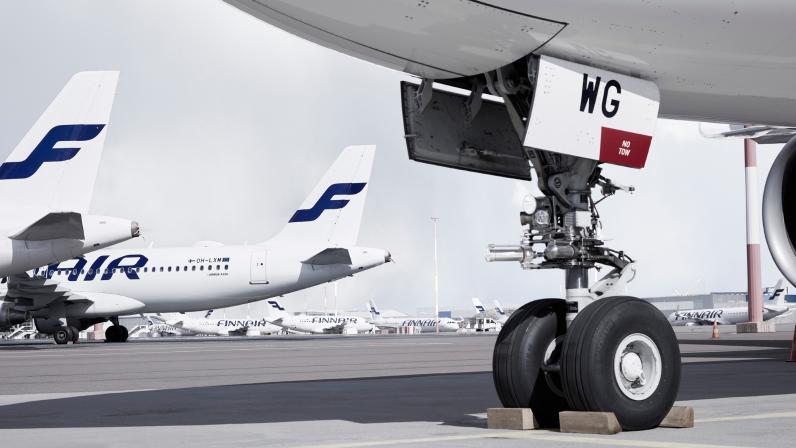
Finnair Technical Services has chosen DHL Supply Chain Finland Oy as its new partner to manage Finnair’s warehousing services. The new partnership will start sometime in the spring or early summer of 2022, at the latest. DHL Supply Chain will then assume responsibility for the logistics services now provided by Finnair’s current logisticians. However, about 40 employees currently working for the former provider will be re-employed by DHL Supply Chain.
Under the new arrangement, DHL will assume responsibility for handling, warehousing and packaging spare parts and maintenance materials for Finnair Technical Services. The partnership also makes DHL responsible for managing special wastes generated by aircraft maintenance and the support operations connected with logistics services.
“Warehouse service performance and spare parts availability are critical in aircraft maintenance,” stresses Tony Veevo, manager for logistics and support at Finnair Technical Services. “At the same time, continuous development of operations in a changing environment is very important to us. We see DHL Supply Chain as a partner offering added value to us thanks to its strong global logistics expertise.”
Finnair’s operations took a hard hit during the COVID-19 crisis. As recently as July 2021, the airline was flying less than a quarter of its pre-pandemic schedule, according to RadarBox. A steady recovery began in autumn of 2021, and by the beginning of 2022 the Scandinavian carrier was operating about two-thirds of its pre-pandemic schedule, thus boosting its need for parts and smart warehouse management.
DHL Supply Chain is the world’s largest contract logistics provider, operating in 53 countries with 160,000 staff, 400 of whom work in Finland alone. The DHL unit has nearly 1,500 warehouses and offices globally and offers 15 million square meters of storage space.
As with airlines, the COVID-19 crisis is seeing a shakeout of the logistics industry, with the larger and stronger logistics companies tending to take over from the weaker and smaller. Kuehne+Nagel, another giant global logistics provider, decided early in the crisis to seek increased market share and has recently expanded its network of offices in Africa.





